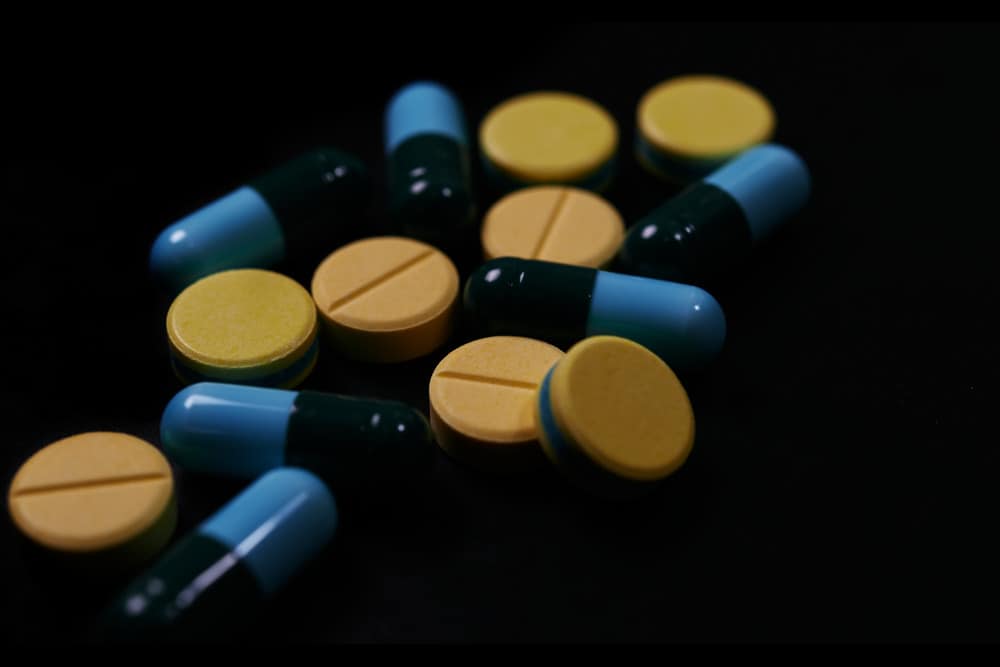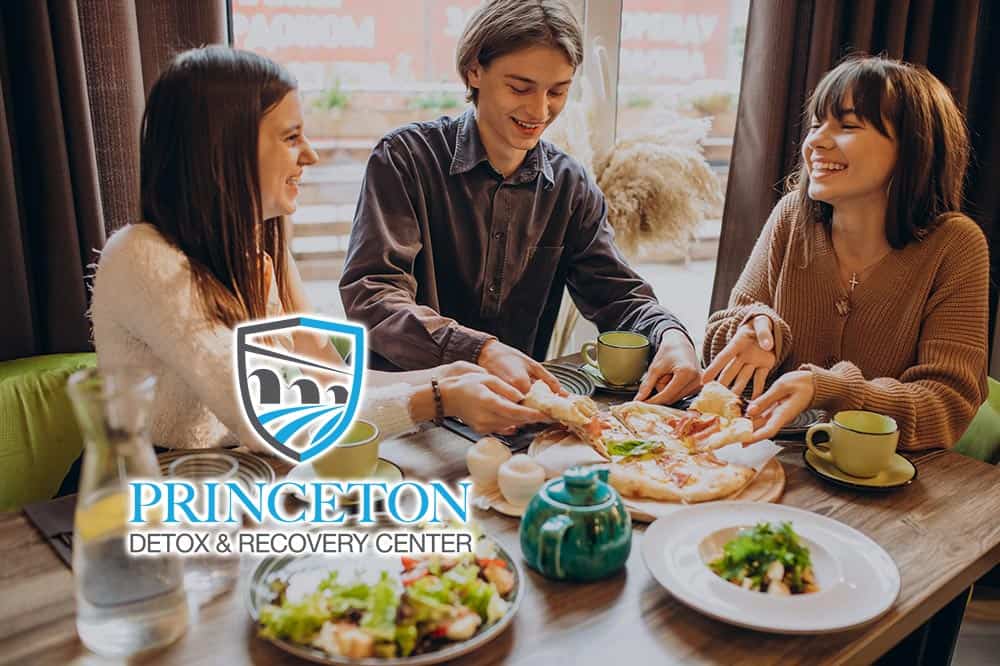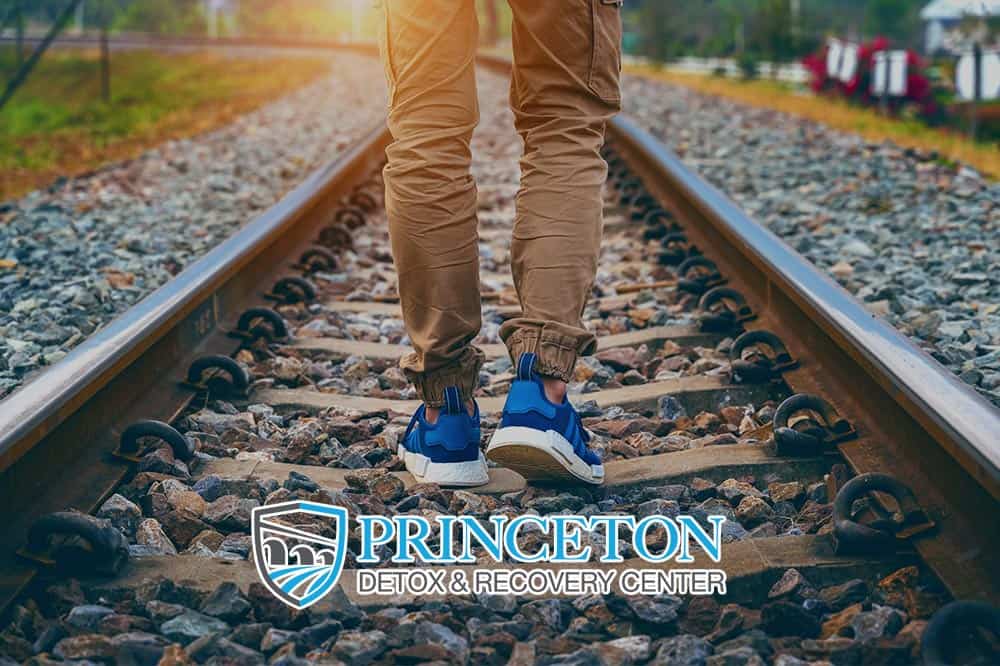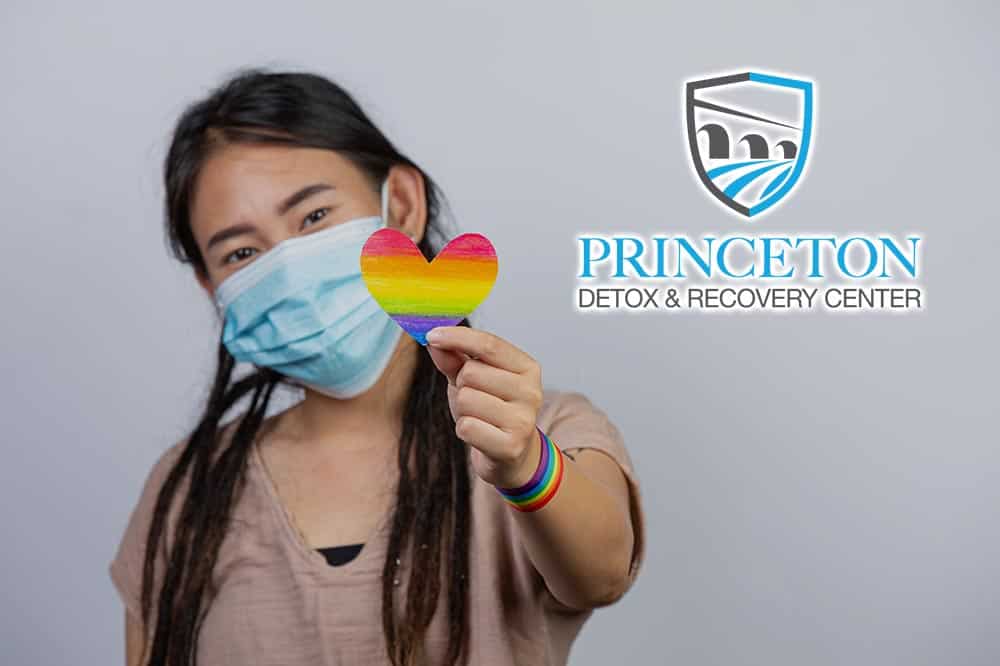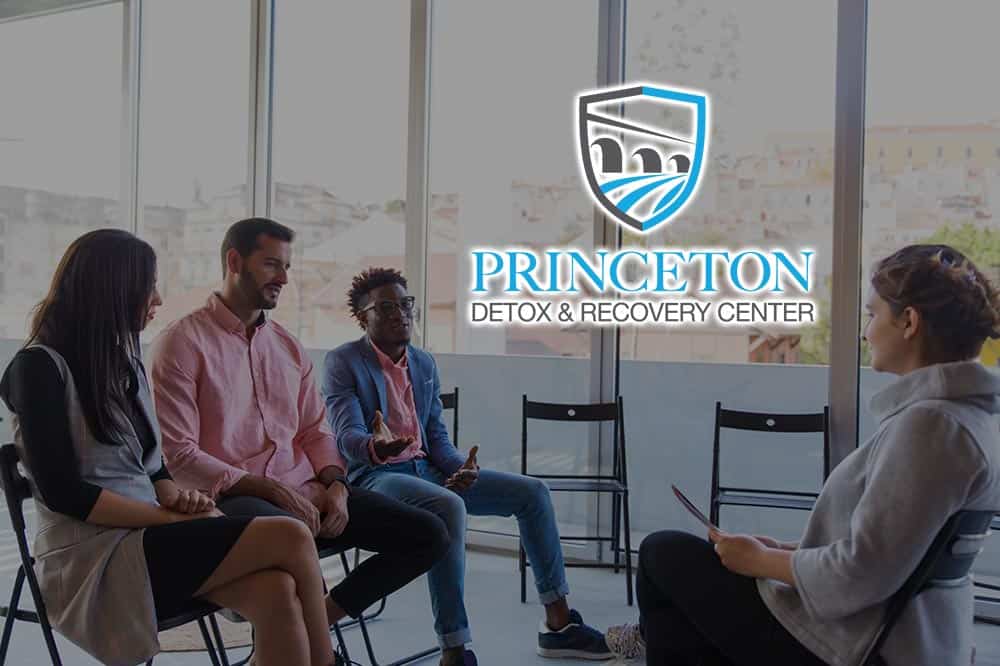The Scope of Prescription Drug Abuse
Prescription drug misuse has become a major public health threat over the course of the past two decades. This is largely due to the over-prescribing of habit-forming prescription opioids, stimulants and central nervous system depressants – however, the accessibility of addictive medications also contributes to high abuse rates. Most individuals who begin abusing prescription medications initially take them from the medicine cabinets of close friends and family members. According to the National Institute on Drug Abuse, in the year 2017 alone an estimated 18 million Americans over the age of 12 had misused a prescription within the past year. The National Survey on Drug Use and Health reported that in the year 2017, 2 million Americans abused a prescription painkiller for the first time. During the same year roughly 1.5 million Americans abused a prescription tranquilizer, 1 million abused a prescription stimulant and 271,000 abused a prescription sedative for the very first time.
When it comes to prescription drug misuse, the demographic that most frequently engages in misuse is young adults between the ages of 18 and 25. However, it is important to note that older adults also misuse prescriptions fairly frequently. Among those aged 18 to 25, 14.4 percent reported nonmedical use of a prescription within the past year and 4.9 percent of 12 to 17-year-olds reported nonmedical use. Roughly 60 percent of the adolescents who were surveyed reported that they received the drugs from a friend or a relative or purchased the drugs from a friend or a classmate.
It is estimated that at least 80 percent of all adults between the ages of 57 to 85 have been prescribed at least one potentially habit-forming medication that they take on a daily basis. Around 50 percent of this specific demographic takes five or more prescriptions and supplements every single day. There are many factors at play that make older adults more susceptible to prescription drug misuse, including chronic pain, age-related metabolism changes and memory loss (for example, an older adult might not remember taking a medication earlier in the day and accidentally take it twice). Regardless of your age and your prescription drug of choice, if you have been abusing a medication for any length of time it is absolutely crucial that you seek professional medical care as quickly as possible.
Prescription Drug Abuse in New Jersey
The rates of prescription opioid abuse are especially high in the state of New Jersey. The National Institute on Drug Abuse reported a total of 2,900 drug-related overdose deaths statewide in the year 2018 alone. Of these fatalities, a staggering 2,583 directly involved opioid narcotics. This number can be largely attributed to the amount of prescriptions written by New Jersey practitioners on an annual basis. NIDA reported that during the year 2018 providers in New Jersey wrote 38.9 opioid prescriptions per every 100 residents. The New Jersey Department of Human Services partnered with the Governor’s Council on Alcoholism and Drug Abuse in order to begin a new initiative called “Drug-Free New Jersey,” geared towards providing education to state residents while implementing drug abuse prevention strategies. The site provides ample resources for parents, young adults and healthcare providers and includes information on where individuals can safely dispose of unused, unwanted or expired prescription medications. If you have any prescriptions that you are looking to get rid of, participate in National Prescription Drug Take Back Day!
We Are Here For You
Let Us Help You Heal
Our Prescription Drug detoxification experience is second to none.
Learn how we can help by speaking with one of our Treatment Advisors today.
National Prescription Drug Take Back Day
In 2010 the Drug Enforcement Administration developed an event geared towards the reduction of prescription drug addiction cases and overdose-related deaths. National Prescription Drug Take Back Day provides an opportunity for community members to anonymously and safely dispose of unused prescription medications and in turn reduce the risk of untimely and unnecessary death.
During the last take back, which occurred in October of 2019, there were 4,896 law enforcement participants, 6,174 take back sites across the country and a whopping 882, 919 pounds of medication retrieved and disposed of.
Click here to find the closest prescription drug take back center near you!
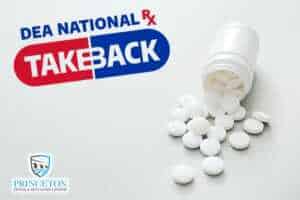
How to Dispose of Unwanted Medications
If you are unable to make it to any one of the designated sites come the end of October, the DEA suggests several other options for safely disposing of medications. In order to avoid environmental damage, accidental poisoning or intentional misuse it is important to follow guidelines and not simply flush drugs down the toilet or casually throw them away. First – check the DEA website to see whether the medications you are in possession of are on the “flush list.” If they are, it means that they can be safely flushed down the toilet without posing the risk of contaminating the local water supply. If the medication is not on the “flush list” it can be disposed of in another way – simply follow the below-listed directions.
- Crush the medication up into a coarse or fine powder.
- Combine the powder with an unappealing substance like used coffee grounds, cat litter or dirt.
- Place the combination into a bad or another small container and seal it tightly.
- Place the container into your household trash can.
- Make sure that your personal information (found on the label of the pill bottle) is blacked out completely. Either tear it off and tear it up or use a permanent black marker to cover it.
If you have any questions regarding this process or regarding safe prescription disposal, feel free to reach out to Princeton Detox and Recovery Center for additional information.
Ready To Begin Your Detox?
Don’t let addiction control your life.
Call us today and let’s get you started on the path to a better you.
Princeton Detox & Recovery Center – Comprehensive Clinical Care
Princeton Detox and Recovery Center offers a level of clinical care that cannot be found in any state-run detox or inpatient treatment facility. As the initial phase of a multi-phased continuum of clinical care we provide New Jersey residents who have been suffering at the hands of a prescription drug addiction of any type or severity with medically monitored detox. Our medical detox program is geared towards providing clients with a safe and pain-free withdrawal as we lay a solid and lasting foundation for continued success in sobriety. While we do prioritize safety and ultimate physical stabilization, we put a big emphasis on therapeutic intervention as well. Upon admission to our medical detox program clients undergo an in-depth, three-part evaluation. We take a close look at personal history and family history with substance abuse as well as current physical and mental health. This helps our team develop a personalized and effective treatment plan. Clients are also assigned a case manager who walks them through every additional phase of the recovery process, from residential treatment all the way through aftercare.
Once the medical detox process has come to a close, the case manager assists the client in transferring directly into the next appropriate level of clinical care. No matter what your recovery-related needs, we have the help you need. To learn more about our program of prescription drug addiction recovery or to learn more about the National Prescription Drug Take Back, reach out to us today.
Click Here To Find Out The Closest Prescription Drug Take Back Center Near You!

Reviewed for accuracy by:
Amanda Hilzer M.Ed, CAADC, IADAC, ICCS, LCADC, CCS
Amanda graduated from Lehigh University with both an undergraduate degree in Psychology and a Master’s of Education degree in Counseling Psychology and has worked in the field of substance use disorder treatment and mental health treatment as a counselor and as a clinical manager for over 14 years.














